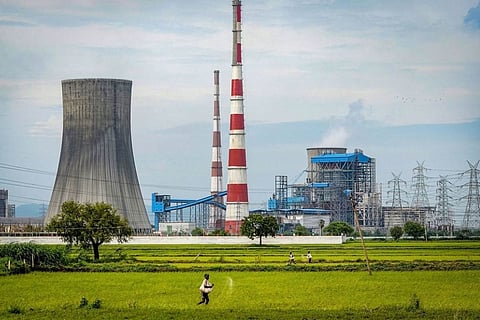

By now, many have seen the viral news of a woman delivering her baby under phone lights in an Andhra Pradesh (AP) hospital, with parents fanning their babies as even the diesel generators had run out. This was not an isolated story. The first sign of an incoming crisis was the power cuts in Srikakulam, Vizianagaram, Visakhapatnam, East and West Godavari districts, even before the summer season began. Then came marathon power cuts plunging hospitals, homes and industries of the entire state into darkness. And this comes close on the heels of a 60% hike in power tariff. If that wasn’t enough, the state suddenly declared a power holiday which is akin to sounding the death knell for industries which are just beginning to recover from COVID-19 induced slowdown. Industries have to limit their working days and their consumption of electricity. The fact that this decision was taken suddenly without any advance planning and intimation to the industries, reveals the dysfunction in the decision-making process of the AP state government.
AP government and its officials love to paint this crisis as a foregone conclusion due to sudden rise in demand. How could they not anticipate the rise in demand during the post-lockdown recovery period? Were the pre-summer power cuts not enough of a warning sign? AP government also conveniently omits how they are directly responsible, as it is this very government which delayed the addition of renewable energy capacity by meddling with the sanctity of solar power purchase agreements (PPAs).
After a protracted legal battle, the renewable energy sector got some relief as recent as March 2022. Had Chief Minister Jagan Reddy not meddled with the sanctity of these contracts in 2019, AP would be moving towards a sustainable, energy-secure future today. But since investors have been spooked by AP’s violation of the sanctity of contract, the CM has nullified any potential spillover effects of renewable energy power purchase agreements (PPAs) like economic growth, job creation for AP youth, additional investments, creation of an ecosystem for renewables, etc.
But the power sector in AP has seen better days. After becoming the first CM of bifurcated AP in 2014, Nara Chandrababu Naidu formulated a five-point strategy of improving “supply through enhanced renewable energy (RE) generation, energy storage technologies, and full capacity utilisation of conventional power plants; implement energy efficiency measures; strengthen the transmission and distribution (T&D) network to bring down losses to below 6%; adopt I-T for better consumer services; and lastly, improve financial management of power projects.”
The results speak for themselves. AP was the first state in South India to achieve power surplus status. AP emerged as a front-runner in NITI Aayog’s Energy Efficiency Preparedness Index, while AP was first in Energy Efficiency Implementation Readiness as per the World Bank. The impact of Chandrababu’s emphasis on alternative tech and green tech is there for everyone to see. By 2018, AP added 10% of the national renewable energy capacity, which constituted 30% of AP’s total generation capacity. AP inaugurated the first thermal battery plant of India, allocated over 100 acres of land for energy storage projects, ultra mega Solar Park of 1000 MW capacity was set up in Kurnool, which was the world’s largest single-location operational solar park in the world.
Fast forward to today. In the midst of marathon power cuts, the ruling party had the nerve to sugarcoat the power holiday imposed on industries as an achievement of Jagan’s governance! Is this yet another outcome of post-truth doublespeak or is this a cruel joke on the people of AP? I can’t say. But one thing is for sure. From being power surplus to celebrating power holidays, AP has dug itself into a hole with Jagan’s ill-thought-out policies.
In what is a long list of affected sectors, the power sector is just another sector which has been adversely affected by Jagan’s policies. The messy handling of the state’s sand policy has affected the livelihoods of at least 20 lakh labourers, in addition to making sand costly and scarce. 185 other movie theatres in AP, including Asia’s second largest theatre, shut-down due to overbearing regulations on ticket prices. In the name of prohibiting liquor, the state government has monopolised the liquor business, leading to smuggling and black marketing, resurgence in the proliferation of arrack, and adulteration which has led to deaths due to consumption of illicit liquor, as happened in East Godavari district recently. I’m not even going to get into the investments and projects that AP has lost, because that would be endless.
It is sad that the current state of affairs in AP, is the result of such self-inflicted wounds of the state government and not an unforeseen fallout of a genuine push towards progress. The industrious people of AP deserve better than becoming mere collateral damage of their government’s policies. We used to be aspirational people once upon a time, always aiming for the best. But going by the damage inflicted since 2019, AP is going to take a while to heal before it can even start aspiring again.
(The author is a politician from Telugu Desam Party and Member of Parliament. Views expressed here are the author’s own.)